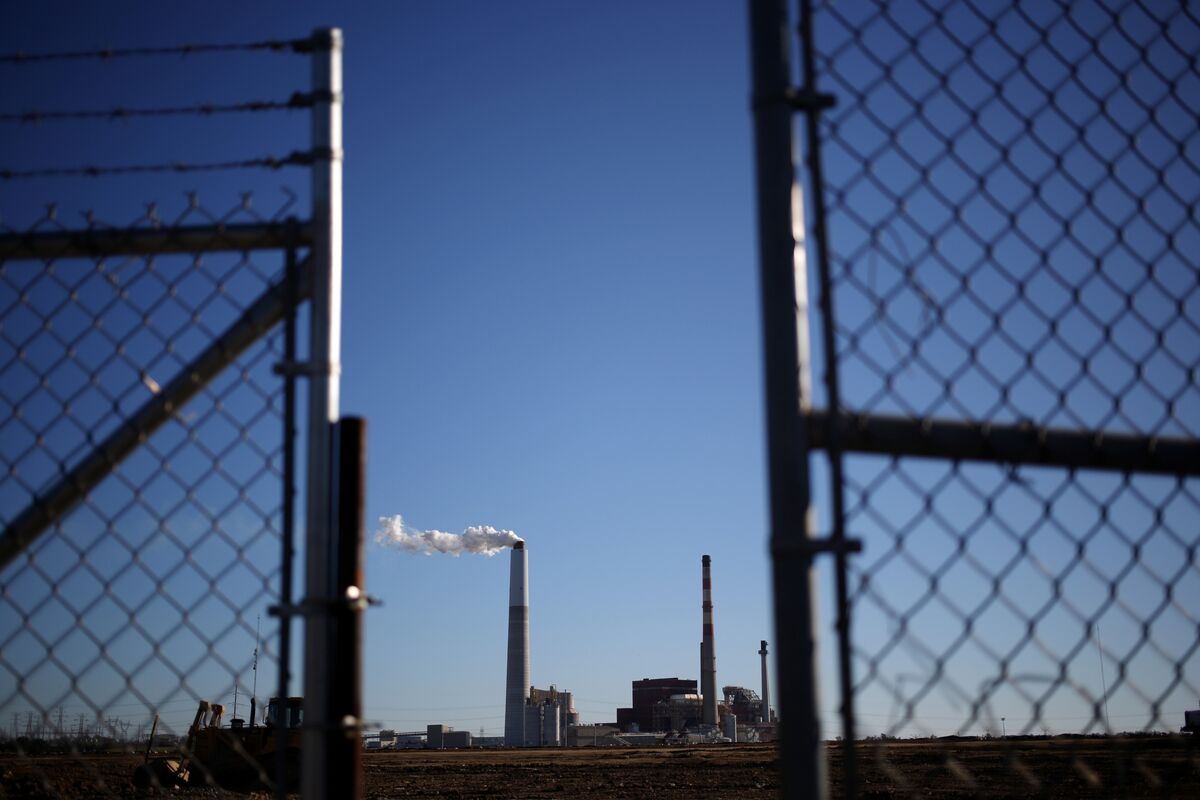Trump Administration Considers Speeding Up Nuclear Plant Construction

Table of Contents
Potential Reasons for Expedited Nuclear Plant Construction
The push for faster nuclear plant construction stems from several key motivations: energy independence, national security, economic growth, and climate change mitigation. These factors intertwine to create a compelling argument for streamlining the process of reactor construction.
-
Energy Independence and National Security: Reducing reliance on foreign energy sources is paramount for national security. Expedited nuclear plant construction would bolster domestic energy production, decreasing vulnerability to global energy price fluctuations and geopolitical instability. This shift towards energy independence strengthens the nation's strategic position.
-
Economic Growth and Job Creation: The nuclear energy sector is a significant job creator. Accelerated construction would stimulate economic growth through job creation in manufacturing, engineering, construction, and related support industries. This includes high-skilled jobs in design and engineering, as well as numerous construction jobs and ongoing operation and maintenance roles.
-
Climate Change Mitigation: Nuclear power provides a carbon-free source of electricity generation, significantly contributing to climate change mitigation efforts. Increasing the number of operational nuclear power plants helps the US meet its emission reduction targets and transition towards a cleaner energy future.
-
Enhanced Grid Stability and Reliability: Nuclear power plants provide a baseload power source, meaning they provide consistent, reliable power regardless of fluctuating renewable energy sources like solar and wind. This enhances grid stability and reliability, ensuring consistent electricity supply across the nation.
-
Modernization of Energy Infrastructure: Many existing nuclear power plants are aging. Building new plants allows for the modernization of the nation's energy infrastructure, incorporating the latest safety and efficiency technologies. This enhances overall energy security and reduces the risk of outages.
Regulatory Changes and Streamlining Processes
To accelerate nuclear plant construction, regulatory reform and streamlining of processes are essential. This involves addressing bureaucratic hurdles and potentially revising existing regulations:
-
Streamlining the Nuclear Regulatory Commission (NRC) Approval Process: The NRC plays a crucial role in licensing and regulating nuclear power plants. Any acceleration plan would likely involve streamlining the NRC's approval process, potentially reducing review times and simplifying the licensing procedures.
-
Reduced Bureaucratic Hurdles and Faster Permitting Timelines: Expedited construction necessitates minimizing delays caused by bureaucratic hurdles. This includes streamlining environmental impact assessments, speeding up permitting timelines, and reducing the overall administrative burden.
-
Revisions to Environmental Impact Assessments: Environmental impact assessments are crucial for ensuring the responsible development of nuclear power plants. Streamlining these assessments, however, requires careful consideration to ensure environmental protection measures are not compromised.
-
Potential Impact on Public Consultations and Environmental Protection Measures: While streamlining is beneficial, it’s vital to balance efficiency with public participation and environmental safeguards. Open dialogue with communities and thorough environmental reviews are essential.
-
Potential Challenges to Environmental Regulations and Safety Standards: Any attempt to expedite the process risks compromising safety standards and environmental regulations. Balancing speed with safety and environmental responsibility is paramount.
Economic and Job Creation Implications
The economic impact of accelerated nuclear plant construction is expected to be significant:
-
Significant Job Creation: Construction, engineering, manufacturing, and operation of new plants will generate thousands of jobs across various skill levels.
-
Increased Investment in the Nuclear Energy Sector: The project will attract significant investment, stimulating further growth within the industry and boosting economic activity.
-
Stimulation of Related Industries: Industries involved in materials manufacturing, supply chain management, and specialized services will benefit from the increased demand.
-
Potential for Long-Term Economic Benefits: Reduced reliance on foreign energy sources translates into long-term economic gains through reduced import costs and greater energy security.
-
Potential Regional Economic Development: The construction of new nuclear plants can revitalize local economies, generating jobs and investment in surrounding communities.
Potential Challenges and Criticisms
Despite the potential benefits, expedited nuclear plant construction faces several challenges:
-
Nuclear Waste Disposal: The safe and permanent disposal of nuclear waste remains a significant challenge and concern for the public.
-
Safety Concerns: Public safety concerns surrounding nuclear power plant operation must be addressed through rigorous safety standards and transparent communication.
-
Potential for Cost Overruns and Delays: Even with streamlined processes, there is a risk of cost overruns and project delays. Careful planning and effective project management are crucial to mitigate these risks.
-
Environmental Risks Associated with Uranium Mining and Plant Operation: Uranium mining and plant operation have environmental impacts, requiring careful mitigation and management.
-
Public Perception and Acceptance of Nuclear Power: Public opinion regarding nuclear power remains divided, and building public trust is essential for the success of any expansion plans.
Conclusion
The Trump administration's consideration of speeding up nuclear plant construction presents both significant opportunities and potential challenges. While it offers the prospect of increased energy independence, economic growth, and climate change mitigation, careful consideration must be given to safety, waste disposal, and public concerns. A balanced approach that prioritizes both efficiency and safety is crucial for successfully implementing this ambitious plan. Addressing these concerns head-on through transparent communication, robust safety protocols, and effective waste management strategies will be vital to achieving the project’s potential.
Call to Action: Stay informed about the developments surrounding the Trump administration's plans to accelerate nuclear power plant construction. Understanding the implications of this policy shift is essential for participating in the critical dialogue surrounding America’s energy future and the role of nuclear power. Follow future updates to learn more about the impact of changes in nuclear plant construction and how these changes might affect you.

Featured Posts
-
 Jessica Tarlov And Jeanine Pirro Clash Over Canada Trade Dispute
May 10, 2025
Jessica Tarlov And Jeanine Pirro Clash Over Canada Trade Dispute
May 10, 2025 -
 Jazz Cash K Trade Partnership Opening Up Stock Markets To All
May 10, 2025
Jazz Cash K Trade Partnership Opening Up Stock Markets To All
May 10, 2025 -
 Apples Ai Future A Crossroads Of Innovation And Stagnation
May 10, 2025
Apples Ai Future A Crossroads Of Innovation And Stagnation
May 10, 2025 -
 Injured Leon Draisaitl Oilers Opt For Caution Against Jets
May 10, 2025
Injured Leon Draisaitl Oilers Opt For Caution Against Jets
May 10, 2025 -
 Interest Rates Unchanged Fed Weighs Inflation And Unemployment Risks In Us
May 10, 2025
Interest Rates Unchanged Fed Weighs Inflation And Unemployment Risks In Us
May 10, 2025
